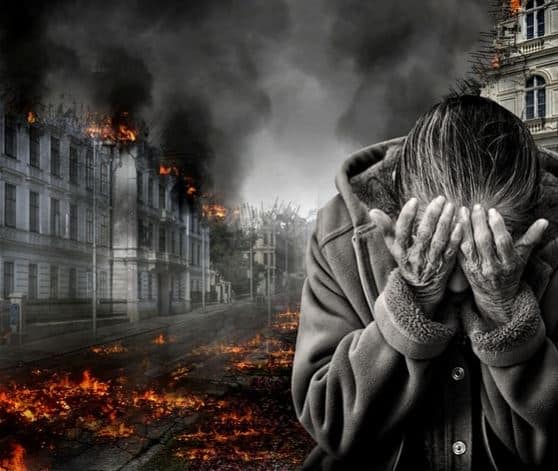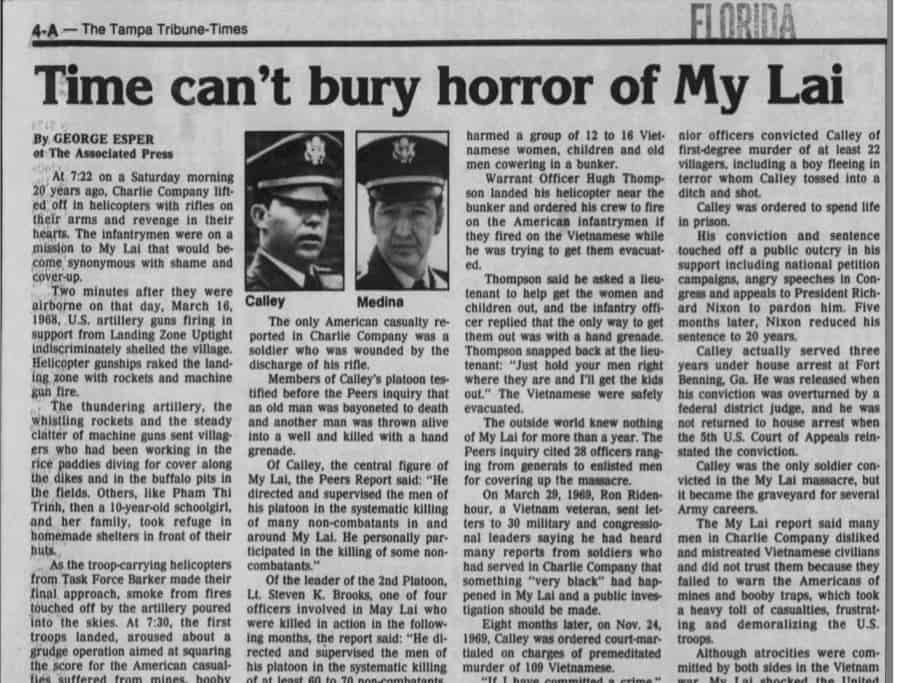by: Thomas R. Cuba, Ph.D., Special To The Free Press
I have a confession to make. I listen to Glen Beck and Rush Limbaugh. I also listen to a variety of shows on NPR, watch CNN and NBC. I’ll let you decide which of those is the confession based on which way you might lean.
I listen to and watch these shows because I find them intellectually stimulating. None of them paint a complete picture. Back in graduate school, around 1980, I asked a friend of mine why the stories were so different. He told me that, as a reporter, when he went to an event he might witness ten percent of what actually happened, write about ten percent of that, and have ninety percent of what he wrote eliminated by the newspaper’s editor. So, I took up the habit of looking for the ninety-nine percent that was missing from any one story by searching others. Not a bad plan, but it has backfired, leading me to my confession.
Yesterday, I was listening to Beck and the old brain cells started to crackle. Beck was going on about war, specifically the coming civil war and whether or not it had already started. Later that same evening, I was sitting next to a millennial at the American Legion hall. The viewpoint of the young veteran was further stimulating.
The man wondered aloud why agent orange was used to spray the forests and rice paddies in Vietnam. He told me that his professors had said it was because Americans were mean and horrible and wanted to hurt the Vietnamese people. That made me think some more.
I got to thinking about my own understanding of war. As a child, I watched the newsreels of Hiroshima being obliterated. In school, I learned of the campaigns of Caesar and, more to the point, the bombing of the City of Dresden during World War Two. I hid under my desk to escape the inevitable nuclear attack from Russia. I watched on television as men only a few years older than me slogged through the rice paddies that my young friend mentioned. I felt the relief that someone was kicking Batista out of Cuba and the uneasiness when that same man installed Russian missiles that could be used in that inevitable attack on my America.

Many around me found an escape by moving far enough north to be out of range of Castro’s missiles, even though the event known as the Cuban Missile Crisis was resolved without firing a shot. Others of us, faced the fear and enlisted. And with that memory, I got to thinking about my prior pursuits in the understanding of war from when I was in the military service. There are vast differences in how wars are fought these days and yet, some things remain exactly the same.
The most significant change in warfare was, in part, because of the My Lai Massacre in Vietnam where U.S. troops killed more than five hundred Vietnamese civilians. Civilians died at Hiroshima. Civilians died in Dresden, where almost four thousand tons of explosives and incendiaries were used to burn the city to the ground. Buzz bombs tormented London and other parts of England for a great part of the second world war. Other more primitive cultures would put the heads of enemies on pikes as a warning.
And, of course, there was my answer to my young friend in the Legion hall. I explained that agent orange was used to create a clear zone around military bases, removing the jungle so that the enemy had no place to hide. I explained that it was used to kill the rice because the civilians grew the rice to feed the soldiers. Just like in Dresden, where the civilians worked in munitions factories and manufactured aircraft for the Luftwaffe. The German buzz bombs did little damage, but they weren’t meant to. They were meant to demoralize the citizenry. At a much larger scale, the bombing of Hiroshima was intended to do the same thing.

A war is fought by the military, but it’s allowed to be fought by the citizenry. In Vietnam, when the American citizenry reached a point of disapproval, the war ended. A demoralized and non-supportive civilian population will choose to eliminate the over-zealous leader rather than to spend more effort, money, and blood to win.
In recent decades, our military has developed the capacity to engage in surgical strikes, and, for the most part, avoid killing civilians at all. The enemies of our military have not adopted the same standards of conduct, choosing instead, to target the civilian populations even more vigorously.
My reflections circled around to Beck again and his assessment of what is happening here in America today. He asked why the rioters burn and loot. The answer is the same as it was in Dresden, London, and every other conflict prior to 1965. The opposition intends to instill fear, or at the very least, high levels of discomfort, in the civilian population. The weapon of choice is fear. The target is the resolve of the people. The question is whether or not the people will move away, or face the enemy.
About The Author: Thomas R. Cuba, Ph.D.
Raised a simple Missouri farm boy, Tom managed to attend a British Prep School before commencing a college career that would culminate in a Doctorate Degree in Marine Ecology. He also served as an Intelligence Officer in the U.S. Navy, and as a scoutmaster, SCUBA instructor, Wilderness Survival Instructor, and Firearms Instructor.
Tom has worked as an ecologist in both government and private practice, as well as a freelance nature photographer and computer programmer.
Now, a father and grandfather, Tom offers life lessons in the form of stories about the challenges people face and conquer as well as socio-political essays. To that end, his first lesson is always his favorite quote. “Failure is the whetstone of success.” ~ T. Leith Rettie, 1884.
You can read more from Tom on his site by clicking here.
